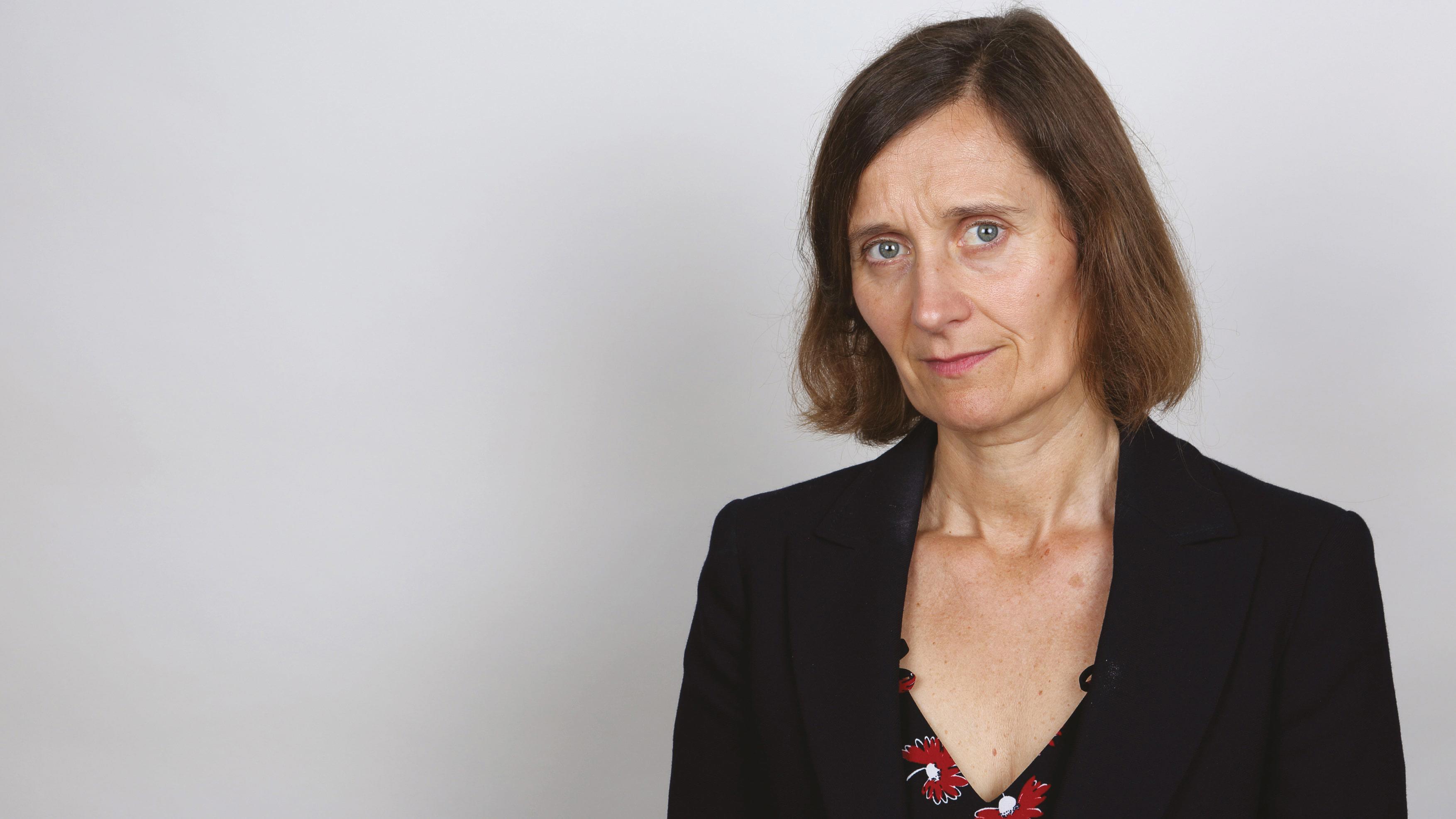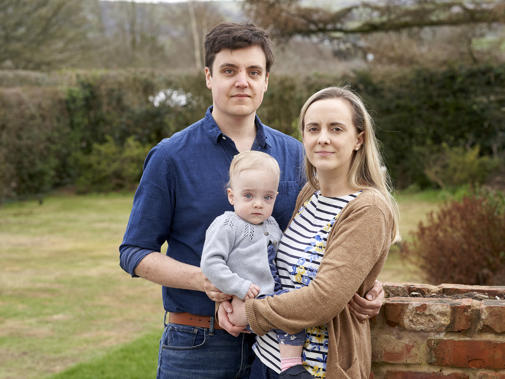When Lynn Hryhorskyj and Mike Kemp found out they were going to have a baby, they were clear they wanted to split childcare as much as possible.
As junior doctors they were among the first to apply for enhanced shared parental leave after it was negotiated in 2018. In the event, when baby Edith was born prematurely, they were incredibly glad that they had.
‘I had originally planned to take around 10 months off, and Mike was going to take a month near the start. But we hadn’t planned to have our daughter at 28 weeks, so when that happened in the August, we had to think again,’ says Dr Hryhorskyj, a GP trainee in Manchester.
‘Being able to take shared parental leave made all the difference. It meant, especially at the beginning, that I was able to get lots of support from Mike, which would have been irrespective of when she’d been born, but especially so because of our circumstances.
Being able to take shared parental leave made all the differenceDr Hryhorskyj
I wasn’t very well myself – I’d had pre-eclampsia – and I’d had a section, so I couldn’t even drive to the hospital to see Edith. But it also gave Mike extra time so that we could bond as a family unit, which was really important.’
Dr Kemp, a neurology registrar, was keen to be as involved in the upbringing of his baby as much as possible, so was very enthusiastic about applying for shared parental leave. He found the whole experience so valuable that he made the decision to reduce his hours even when the parental leave was over, allowing him to spend more time with his daughter.
‘We wanted to have children, but we always intended for me to have a significant role in childcare,’ says Dr Kemp.
‘Having a child should be an equal partnership – it shouldn’t be the case that it’s the mother’s role to bring up the kids.
‘Also, it’s about work-life balance. One of the things we’d always talked about was that rather than one of us dropping down to working 50 or 60 per cent, perhaps we’d both work at, say, 80 per cent, so we’d both have that role in our child’s upbringing.’
Quality time
When Edith was born prematurely, the shared parental leave was a ‘blessing in disguise’, he says.
'It allowed me to be far more involved than some of the other dads on the neonatal unit, who had less support from their employer, or who couldn’t afford to be there as much because they had to be at work or they wouldn’t be earning.
‘But it started the process where I was at home more often, and it got me involved in the childcare early – it normalised it, and made me part of the routine care of our daughter.’
He took around three months of leave in the first half year of Edith’s life, in a mix of parental and annual leave, and then in February he dropped to 80 per cent. Most of his colleagues reacted very positively.
‘Within the other trainees, nobody questioned it. At the time, one or two of the consultants in the department were a little more conservative. Some warned me that it would slow my training down, but it’s not a race. If I don’t finish my training until I’m 36, then so what? I’ll not be retiring until I’m 68. What does it matter in the grand scheme of things – you don’t get that time with your children again.’
Some warned me that it would slow my training down, but it’s not a raceDr Kemp
Later, both dropped further hours and do all the childcare between them – something they probably wouldn’t have done if shared care hadn’t been ‘normalised’ in those first few weeks and months.
‘Shared parental leave is perhaps a gateway drug to increased paternal childcare, and that’s really important for helping to shift the gender pay gap,’ adds Dr Kemp. It has also helped family relationships.
‘Edith is definitely a daddy’s girl – he even did the first nappy change, while she was in an incubator and with my mum watching,’ laughs Dr Hryhorskyj.
‘I know we’re incredibly privileged to be able to do this, not just because of our terms and conditions [of service] but also because we earn enough to be able to make it work financially. But the irony is that when we complete training, we may potentially not have access to it [enhanced shared parental leave] – and that irony isn’t lost on us.’
When the UK Government’s long-awaited report into the gender pay gap, Mend the Gap, was published late last year, one of its clear recommendations was to ‘extend enhanced pay for shared parental leave to all doctors to overcome a cultural barrier to men playing more of a role in caring and to challenge stereotypical assumptions of gender roles’.
In its response to the report, the BMA said this should be implemented without delay.
Left out
Helen Fidler, deputy chair of the BMA’s UK consultants committee, says it’s an important issue for ensuring equity, changing cultures, and narrowing the medical gender pay gap.
‘It’s something that really raises my hackles,’ says Dr Fidler. ‘In England, all NHS staff working under the Agenda for Change contract, junior doctors and SAS doctors on the newly accepted contract have access to enhanced shared parental leave. In general practice they are in discussion on how GP practices can offer enhanced shared parental leave to employed GPs.
'So, while we watch this equality-enhancing right being offered to the vast majority of the NHS, this is not being extended to consultants, unless we agree to make other changes to our contract. This is a benefit that offers a chance to improve equality in the profession and I don’t think it is remotely acceptable to use this as a manipulative lever to force unrelated changes that can be to the detriment to some of our members.’
Shared parental leave is perhaps a gateway drug to increased paternal childcareDr Kemp
She believes many female consultants have been disadvantaged in career terms by having children, but that making enhanced shared parental leave available would help to change that.
‘I’ve got five children, and financially it wasn’t viable for us to split parental leave, so my husband – who may or may not have wanted to take time off – didn’t have a choice, basically. I took time off, and we know that the gender pay gap starts around the age of 30, which is the time many start to have children, and so essentially it’s a maternity penalty.’
Burst into tears
Dr Fidler was a junior doctor when she had her first child, aged 32, and – like most new mothers – found it tougher than she had anticipated to combine work with being a parent, particularly as her child had special needs.
 FIDLER: Told going part time would destroy her career
FIDLER: Told going part time would destroy her career
‘I was completely drained, didn’t know what to expect and thought I’d be able to control the situation. I think a lot of women who are successful in their careers think it will be different for them, but of course it’s exactly the same as it is for everyone else.’
At the time she was doing a demanding job in a transplantation unit and, she says, had to leave ward rounds to burst into tears.
I was completely drained, didn’t know what to expectDr Fidler
‘A very understanding GP signed me off for two weeks and I was able to sleep; I felt like a different person and realised I needed to go less-than-full-time. When I mentioned this at work, a female consultant told me it would be the death of my career if I went part time. But I felt I had no choice, so I pushed and pushed to do it.’
She was made to feel she was ‘work-shy’, she says, when she had to leave on time to pick up her child. ‘It was very hard, and created a bad work environment.’
Her husband was also a senior registrar and was working very long hours so was unable to pick up any of the slack, she says.
‘It did cause friction at home. Having shared parental leave would have made a difference because I would have had someone at home, available to help, rather than someone working 14-hour days, who was also tired when he got home.
'And it would have helped with the culture, because if there were male colleagues doing the same as me and taking time off to look after children, they would have understood. It would have been more acceptable – it wouldn’t be such a gendered issue.’
Photos by Ed Moss

